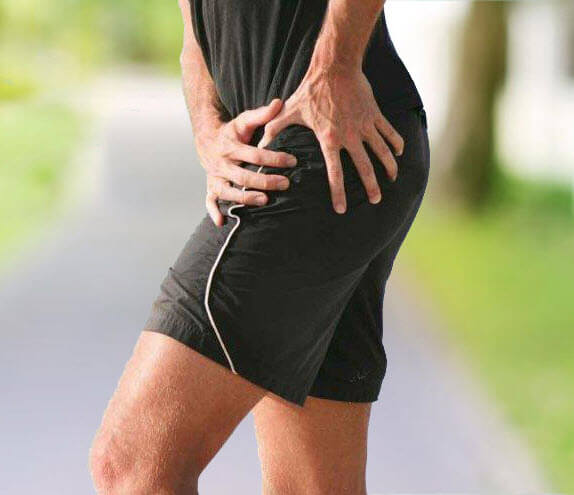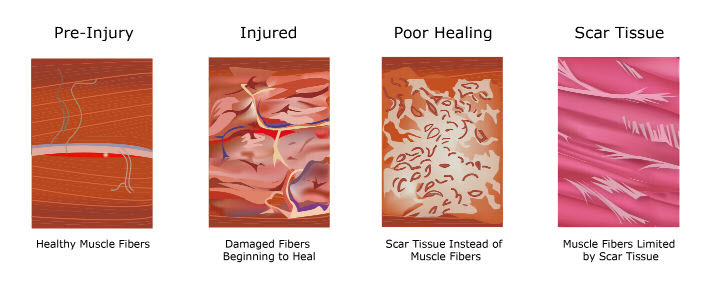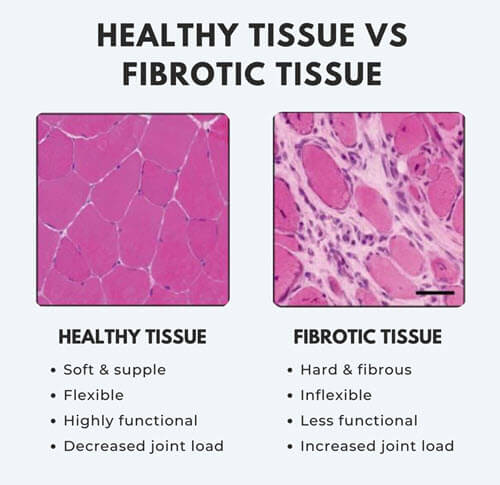Hip Pain
Hip pain can have many different origins and pain generators. Painful hip impingement can be caused by muscles and connective tissues that are tight, short and inflexible, creating dysfunctional movement in the hip joint. This chronic dysfunction can also be a precursor to early degenerative change due to poor movement patterns and wear-and-tear at the joint surfaces.
While its common to have pain caused by the hip joint itself, we also frequently see cases of referred pain from the lower back (lumbar spine) and entrapped peripheral nerves, causing pain to be felt locally at the hip.
Common Symptoms of Hip pain
→ Sharp pain with movement
→ Pinching at the front of the hip
→ Groin pain
→ Catching, clicking, popping, locking
→ Dull, aching pain
→ Pain with side-sleeping
→ Tightness & stiffness
→ Limping
COMMON causes OF Hip PAIN
→ Soft Tissue Fibrosis (Adhesion)
→ Labrum injury
→ Nerve entrapment
→ Trigger points
→ Muscle weakness
→ Osteoarthritis

initial consultation
Get Started
FIBROus adhesion
A common cause of unresolved pain is chronic, fibrotic change within soft tissues (also known as fibrous adhesion, or scar tissue). This is when muscles and connective tissue becoming tight, weak and inflexible due to a lifetime of sitting, poor posture and overuse.
The tightness and weakness caused by adhesion then leads to a cascade of compensatory changes changes that eventually result in pain (disc injuries, nerve entrapment and joint pain).
The most common treatments for chronic musculoskeletal pain include adjustment/manipulation, massage, dry needling, kinesio tape, stretching and exercises.
NONE of these techniques are likely to treat the underlying fibrous adhesion.
When the presence of adhesion is not recognised, the diagnosis is incomplete. Without detailed clinical processes and an accurate diagnosis, many treatments will not provide sustainable relief as the underlying cause has not been addressed.

FIBROUS ADHESION: What is it?
Most folks know of scar tissue, which is form of tough, fibrous tissue. But there are other descriptive terms too, such as fibrosis, adhesion, fibrous adhesion, etc.
These various terms describe a mass of dense connective tissue that is made up primarily of the proteins collagen and fibrin. We often think of this as being a response to an accident, surgery, or trauma where the body lays down scar tissue as part of a healing process. This can result in the affected soft tissues becoming tougher, inflexible and a loss of the normal glide and slide that is part of healthy movement – muscles and other tissues get stuck together!
However it is not just direct trauma or surgery that can cause this response within tissues. Adhesion can also develop due to hypoxia, that is, low oxygen levels within tissues that kicks-off the process of fibrotic tissue formation. Think of poor or prolonged postures (sitting for hours on end), long and sustained muscle contractions, repetitive motions and athletic pursuits – all of these can reduce the normal oxygen supply to soft tissues and kick-start the adhesion pathway.

The end result is tight, short and inflexible tissues that cannot do their job properly. Muscles become weak and stuck together, tendons become inflamed and painful, nerves get stuck to surrounding tissues, ligaments can no longer move properly and joints start to degenerate early.

FIBROUS adhesion is a big deal.
It may be the disc bulge, the herniation, the degeneration and osteoarthritis that generate the chronic pain and these are the big things that show up on the radiology report – but it was often the fibrosis of surrounding soft tissues that happened first.
The joints of the human body are designed to move through full ranges of motion and need to be able to do this for health and longevity. When the soft tissues that support a joint become tight, weak and inflexible, the loading of the joint also changes and when this occurs over a period of time, eventually something starts to hurt.
Fibrotic soft tissues are often involved with painful degenerative processes (osteoarthritis, disc degeneration) and this is often the underlying cause of chronic musculoskeletal pain that is not relieved via most traditional treatment approaches.

It’s a common problem, uncommonly diagnosed.
Think of scar tissue, it is dense, tight, inflexible and very strong! When this infiltrates healthy muscles, tendons & ligaments, we get problems – decreased flexibility, decreased range of motion and weakness. Unlike a scar which is usually related to an accident or direct trauma, we develop fibrotic tissue and adhesions over time, through our daily living, poor postures and general overuse.
It’s a consequence of being a modern-day human.
Despite the prevalence of this problem and the impact it has on chronic pain conditions, it is not widely taught within the foundational education systems for musculoskeletal providers and requires further training. Therefore many of the traditional approaches to treating chronic pain can be ineffective because the practitioner is treating the symptoms and not the underlying cause.
How can Apex Soft Tissue & Spine help?
We are not your typical Chiropractic office – we don’t rely on joint manipulation as you may have experienced before. We have extensive experience in diagnosis and treatment of fibrous adhesion and nerve entrapments, which are frequently an underlying and undiagnosed cause of chronic pain. We use non-surgical treatment techniques to reduce adhesion that is affecting muscles, tendons, ligaments and nerves.

